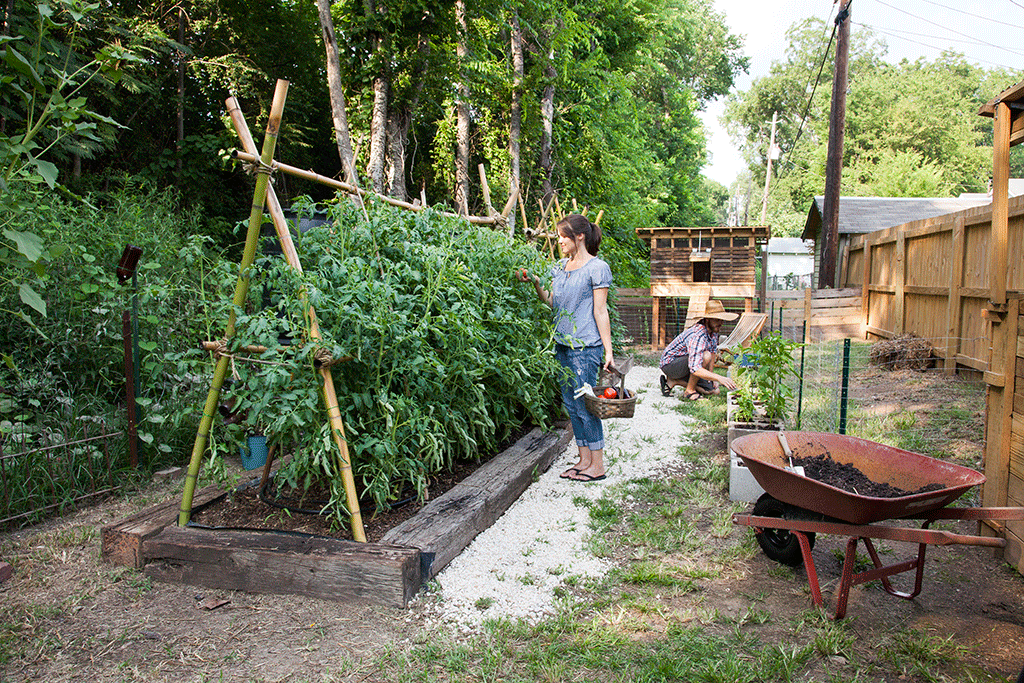Growing your own food is a rewarding and cost-effective way to provide fresh, nutritious produce for you and your family. Not only does it allow you to have control over what goes into your food, but it also promotes sustainability by reducing your carbon footprint and supporting local food production. With the increasing awareness of the environmental impact of industrial agriculture, many people are turning to sustainable practices in their own gardens to grow their own food.
When it comes to growing your own food sustainably, there are several key factors to consider. These include choosing the right plants, using organic methods, conserving water, and promoting biodiversity in your garden. By following these principles, you can create a thriving garden that not only provides you with fresh produce but also benefits the environment.
Choosing the Right Plants
One of the first steps in growing your own food sustainably is to choose the right plants for your garden. When selecting plants, consider the climate, soil type, and available sunlight in your area. Opt for plants that are well-suited to your local conditions, as they will require less maintenance and water.
In addition, choose varieties that are known for their high yield and disease resistance. By growing plants that are well-adapted to your garden, you can reduce the need for pesticides and other chemical inputs. Some popular choices for sustainable gardening include tomatoes, peppers, lettuce, and herbs like basil and cilantro.
Using Organic Methods
Another important aspect of sustainable gardening is to use organic methods to care for your plants. Organic gardening avoids the use of synthetic fertilizers, pesticides, and herbicides, which can harm beneficial insects, pollinators, and soil health. Instead, opt for natural alternatives like compost, mulch, and organic fertilizers to provide nutrients to your plants.
Compost is a great way to recycle kitchen scraps and yard waste into nutrient-rich soil for your garden. By creating your own compost, you can reduce your household waste and improve the soil structure in your garden. Mulching is another effective method to conserve moisture, suppress weeds, and protect the soil from erosion. Use organic materials like straw, leaves, or grass clippings to cover the soil around your plants.
Conserving Water
Water is a precious resource that is often wasted in traditional gardening practices. To grow your own food sustainably, it is important to conserve water in your garden. One way to do this is by using drip irrigation systems or soaker hoses to deliver water directly to the roots of your plants. This method reduces water evaporation and ensures that plants receive the right amount of moisture.
Another way to conserve water is by collecting rainwater in a rain barrel or cistern. Rainwater is free of chlorine and other chemicals found in tap water, making it ideal for watering your garden. By harvesting rainwater, you can reduce your water bill and lessen the strain on municipal water supplies.
Promoting Biodiversity
Biodiversity is essential for a healthy and resilient garden ecosystem. By promoting biodiversity in your garden, you can attract beneficial insects, pollinators, and natural predators that help control pests and diseases. Plant a variety of flowers, herbs, and vegetables to create a diverse habitat for wildlife in your garden.
Consider planting flowering plants like lavender, marigolds, and sunflowers to attract bees and butterflies. These pollinators play a crucial role in the reproduction of many fruit and vegetable crops. Additionally, incorporate herbs like dill, fennel, and cilantro to attract predatory insects that feed on pests like aphids and caterpillars.
In conclusion, growing your own food sustainably is not only good for your health and the environment, but it is also a rewarding and enjoyable experience. By choosing the right plants, using organic methods, conserving water, and promoting biodiversity in your garden, you can create a thriving ecosystem that sustains itself and brings joy to your life. So roll up your sleeves, get your hands dirty, and start growing your own food sustainably today!

